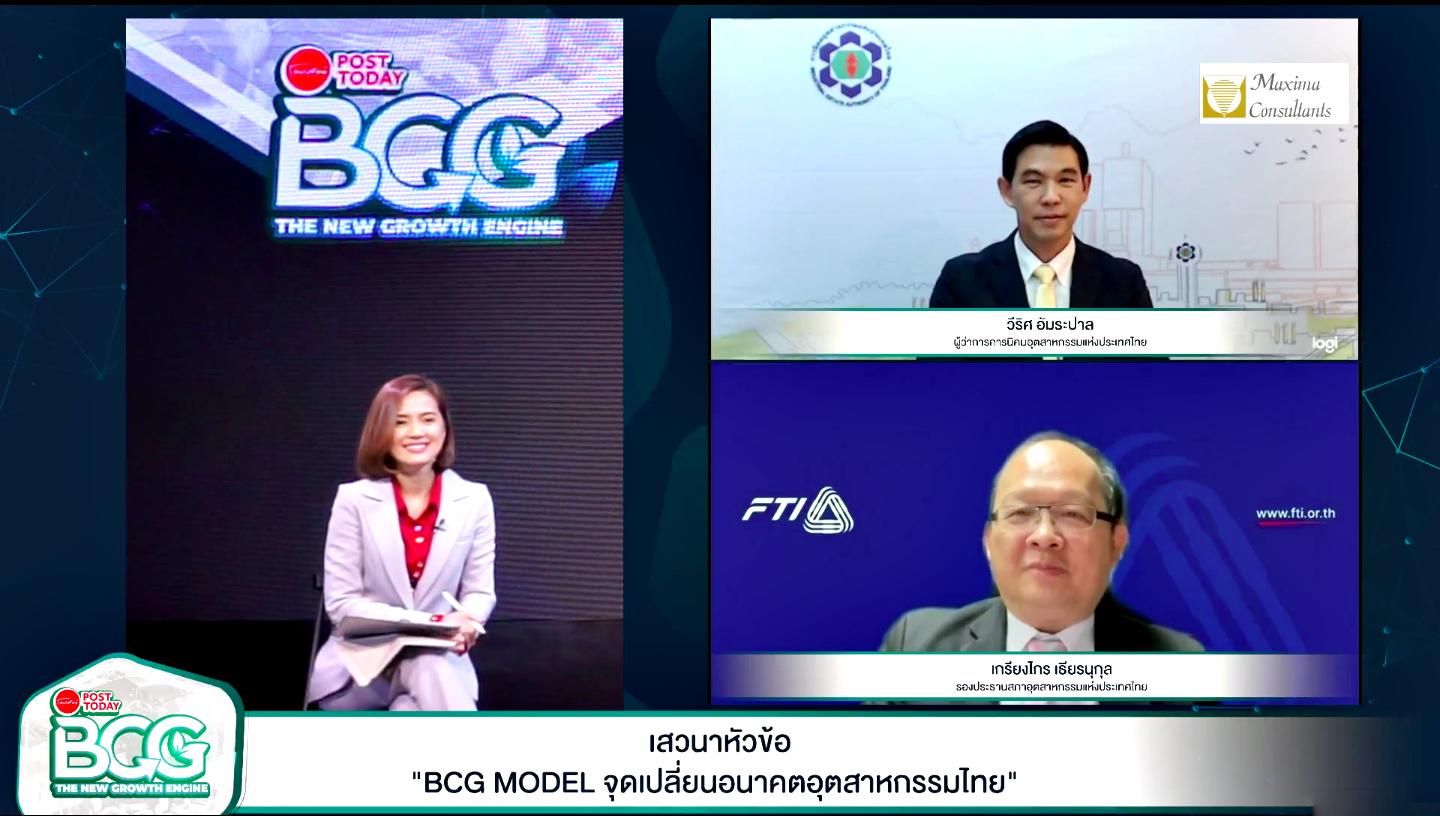
The Industry Ministry aims to boost Thailand's post-pandemic GDP with bio-, circular and green (BCG) economic development and turn the country into an Asean bio-hub by 2027.
BCG encourages manufacturers to make and add value to products with no or minimal impact on the environment. Renewable resources, including farm produce, are a particular focus of bio-economy, which turns them into value-added products.
"We want to increase high-value-added agricultural products to better support local farmers in the long term," said Industry Minister Suriya Jungrungreangkit during a forum entitled "BCG: The New Growth Engine", organised by PostToday on Wednesday.
Investors have so far invested in bio-economy projects worth more than 10 billion baht. They include a polylactic acid (PLA) project in Rayong, the Nakhon Sawan Biocomplex in Nakhon Sawan, and the Palm Biocomplex project in Chon Buri.
PLA is a compostable biopolymer which can be used in a variety of applications including coffee capsules and food packaging.
Other participants in the forum agreed with the BCG push as it is in line with the global campaign to reduce carbon dioxide emissions.
However, not all companies are ready to make new investments in BCG-related projects, according to a survey jointly conducted by the Industrial Estate Authority of Thailand (IEAT) and the Japan External Trade Organisation.
Up to 51% of 500 companies in Thailand told the pollsters they would not invest in BCG projects, said Veeris Ammarapala, governor of the IEAT.
Only 49% were keen to make new investments under the BCG economic model.
The findings will prompt the government to adjust tax privilege programmes and make them more attractive to investors, said Mr Veeris.
The Federation of Thai Industries (FTI) expects investments in BCG projects to increase costs by 30-50%, so authorities must help support investors through tax incentive packages.
Kriengkrai Thiennukul, vice-chairman of the FTI, stressed the need to follow the BCG economic model to increase production efficiency and avoid trade barriers imposed on products made in factories which fail to protect the environment.
Pravit Prakitsri, chief operating officer of Mitrphol Group, a sugar manufacturer, said his company will allocate 5% of total revenue to invest in BCG projects.
Sharing the same stance, PTT Global Chemical Plc will spend US$20 billion to curb greenhouse gases between 2021 and 2050, said its senior vice-president for sustainability and corporate branding Chaya Chandavasu.